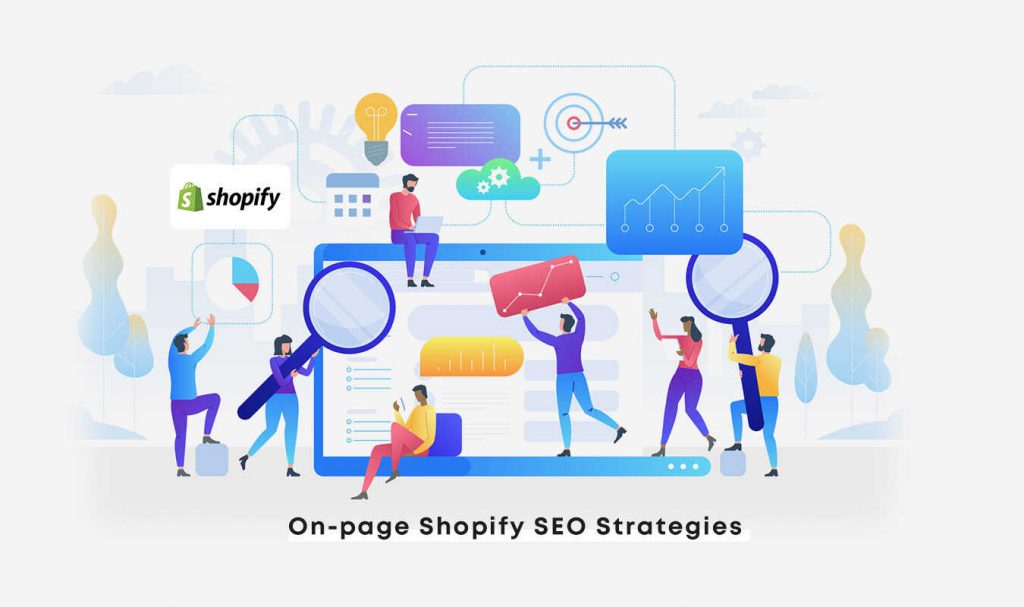Everything You Need To Know About Shopify SEO
Your Shopify store looks great, but could you say the same for the traffic it’s receiving? Paying a little attention to your SEO can help you attract many new customers to your store. Here’s how you can use Shopify SEO features to increase the number of hits that you receive from search engines.
Shopify: An ecommerce goldmine, but only if you have traffic!
Shopify is the go-to ecommerce platform for internet-first entrepreneurs. It’s the platform of choice for 20% of the world’s top web stores, which makes it the second-largest player in top-tier ecommerce software. If you are setting up shop on Shopify, you are one of 2.6 million businesses from around the globe spanning a diverse range of categories.
Does Shopify Suit Your Business?
Of the millions of businesses using Shopify, the majority have between 10 and 50 employees, and generate US$1 to 10 million in revenue. We believe Shopify is an excellent option for small to medium sized B2B or B2C businesses, and there’s plenty of room to grow!
Shopify’s Built-In SEO Features
Properly implemented, Shopify’s built-in features can boost ranking factors such as site security, user-friendliness and loading times. Strong ranking factors increase your chances of appearing in top search results. Here are just a few of the SEO features Shopify offers out-of-the-box:
- Canonical tags: Canonical tags tell search engines which version of a URL you want to appear in search results, preventing duplicate links. If too many URLs lead to the same webpage, search engines may discriminate against your site. Canonical tags prevent that from happening.
- XML sitemaps: Submitting a sitemap enables search engines to find your most important webpages faster by including them in a handy list. Sitemaps speed up loading by telling search engines which webpages to crawl more often.
- Robots.txt files: These files tell search spiders how to crawl through your webpages, ensuring your best content gets highlighted and included in search results to draw customers to your site.
- Shopify CDN: CDNs are server networks that shorten the distance that data has to travel in order to reach the user, allowing for faster load times. The built-in Shopify CDN ensures quick loading around the globe.
- Search engine listing previews: You can use this feature to see how your content will appear as a search result. This allows you to optimise your search results for receiving more customer clicks.
- SSL encryption: Shopify implements SSL encryption across your web store, which bolsters site security, protecting your customer data and improving your page rank.
- URL redirects: Automatic 403 redirects make sure customers visiting outdated URLs are brought to the updated ones. This makes searching for your site super user-friendly.
- Title tags: Or H1 tags generated by Shopify Themes also contain your store name, making hits more likely whenever customers enter the name of your site in search.
- Social media: Sharing links are built-in to Shopify Themes, allowing customers to share your content, adding to the user-friendly feel of your store.
- Alt-text, URLs, meta-descriptions, and title tags for images can be edited, allowing you to include every detail of your site in accordance with your on-page SEO strategy.
On-page Shopify SEO Strategies

- Consider any pre-existing websites and the keyword strategy you are using before you start optimising your Shopify store.
- Purchase a custom domain that includes your main focus keyword and apply it to your Shopify store.
- Activate the SSL certificate included in your Shopify plan and enable HTTPS.
- Submit your sitemap to Google and other relevant search engines.
- Survey potential customers and brainstorm keywords that could be associated with your business.
- Start by making a list of five topics related to your business that your customers may use to search for products. Come up with keywords aligning with those topics.
- Use keyword research tools such as Google Keyword Planner, Ahrefs, SEMrush, or Ubersuggest to find keyword ideas and volumes.
- Select a combination of long-, short- and medium-tail keywords that relate to your website, page content, and products.
- Add keywords to page titles, meta descriptions, URLs, ALT tags, body content, categories, and file names. Add them everywhere!
- Be consistent in how you use your keywords, and integrate them into the content as naturally as possible.
- Assign one primary and several secondary keywords to your most important web pages.
- Include keywords near the start of content to ensure they’re picked up by the search engine.
- Keep track of your keyword and user analytics by setting up Google Analytics for your website.
- Do not overuse keywords as that may alienate customers and the search algorithm.
- To ensure visibility in search results, keep titles under 60 characters and meta descriptions under 150 characters
- Add your full domain to Google Search Console to optimise the crawling and indexing of your site.
- Have only one H1 tag (the default title) per page.
- Include your Unique Selling Proposition in the meta description.
- Give all images descriptive file names to aid search engines.
- Display testimonials and product reviews on pages, and invite customers to provide feedback where possible.
Technical Shopify SEO Strategies
To optimise site loading times:
- Minify CSS.
- Verify CSS Syntax to ensure automatic CDN updates.
- Test the resource demands of your theme by using apps like GTMetrix.
- Add Accelerated Mobile Pages (AMP) to your Shopify store.
- Use Responsive Design so your store adjusts to different devices.
- Remove unnecessary apps and avoid sliders.
- Incorporate Structured Data such as Product, Breadcrumbs, and Article Schemas.
- Use apps and tools like Smart SEO, SEO Image Optimizer, and Plugin SEO.
You Next Move
We’ve covered some strategies that, if properly implemented, can deliver a huge jump in your Shopify store’s ranking and traffic. To further improve and solidify your ranking, you can use off-page strategies such as guest blogging and social media. Start optimising your Shopify store today and do not hesitate to contact eMarket Experts, Melbourne’s premier digital marketing agency, for assistance and advice if things start to get overwhelming!








